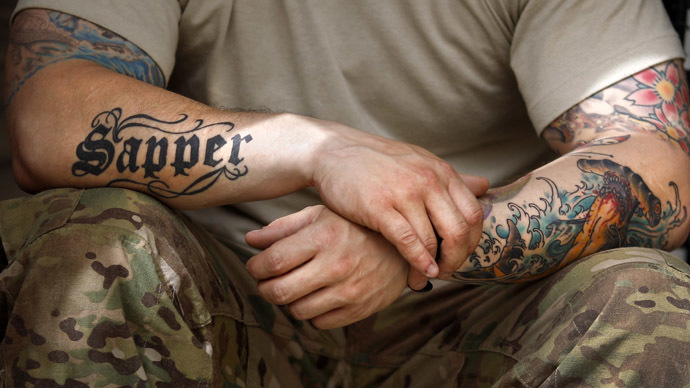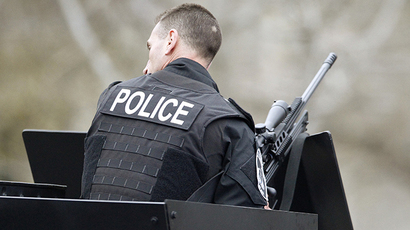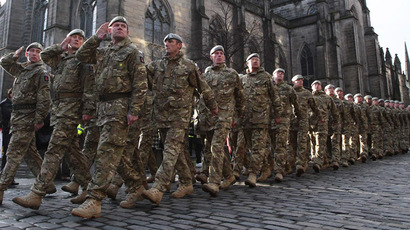Inked brigade: UK Army lifts ban on hand & neck tattoos

The British Army has lifted its ban on visible tattoos on the hands and neck, in a bid to adjust to changing attitudes and fashion. Previously, tattoos were seen to undermine the dignity and authority of the Army.
Tattoos are now permitted on the hands and the back of the neck, but not on the face or neck, which can be seen in soldiers’ passport photos.
Prominent tattoos or particularly large ones were seen to damage the image of the British Army, but as body art has entered the mainstream in recent years, the Ministry of Defence (MoD) decided to relax its rules.
“Tattoos have become more acceptable in society over the last decade, reducing the negative connotations that, in some quarters, have been associated with them,” an MoD spokesman told the Daily Mirror.
“In recent years there has been an increasing number of personnel with tattoos on visible areas.
“There is no evidence that commanders have found these to have an adverse impact on operational effectiveness and as a result there has been reluctance to discharge those who breached the policy.”
The British Army’s online guidelines say: “If your tattoo is offensive, obscene or racist it will prevent you from joining the Army.”
“Small tattoos that aren't offensive in any way are not normally a problem, depending where they are on your body and how visible they are.”
It is a breach of Army rules if the tattoo shows sexual acts, violence or illegal drugs.
Until now, visible tattoos have led to the rejection of many potential recruits attempting to enlist.
The British army rejected 336 applications in 2013/14 because of "offensive or inappropriately placed tattoos," as well as piercings, a Freedom of Information request from July revealed.
The British Army will be cut from 102,000 personnel to 82,000 as a result of budget cuts, but it still has to recruit thousands of young ‘part-time’ soldiers a year to make up for turnover.
In June this year, Capita, a private company managing army recruitment, called for a review of the Army’s tattoo policies.
Capita’s chief operating officer Dawn Marriott-Sims said the rules were “a barrier to a significant number of our target population.”
She said people now trying to join the army are “far more likely to have tattoos [than] five years ago, 10 years ago or 15 years ago.”
“So actually there are some potentially good candidates who would not make the criteria because of tattoos,” Marriott-Sims told the Telegraph.
‘Destructive viral circulation’
While soldiers have been handed more freedoms in their choice of tattoo, they are meanwhile urged to take extra care with their social media usage.
The Army Families Federation (AFF) warned on Thursday that intimate selfies exchanged between serving soldiers and their partners back home could end up in the wrong hands, leading to compromised security.
“Social media has long been a concern for the MoD and the department works hard to ensure troops do not compromise security by giving away too much online,” wrote Catherine Spencer, AFF chief executive, in the army magazine Soldier.
She also warned readers about the danger of revenge porn and called for greater Army guidance for soldiers “to ensure that one-to-one sharing does not lead to destructive viral circulation.”
The MoD issued social media guidance for defense personnel in October 2013, “Think before you share online,” warning that “pictures are powerful and often revealing assets that can also pose a risk to personal and operational security if placed in the wrong hands."
“Always consider how the images and videos you publish might be interpreted, and what level of information they are displaying,” it advised.














